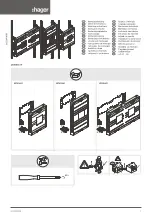
Figure. 7.4 - 144. Non-latched trip contact.
When the auto-reclosing function is used in feeder applications, the trip output contacts must be non-
latched. Trip circuit supervision is generally easier and more reliable to build with non-latched outputs.
The open coil remains energized only as long as the circuit breaker is opened and the IED output
releases. This takes approximately 100 ms depending on the size and type of the breaker. When the
breaker opens, the auxiliary contacts open the inductive circuit; however, the trip contact does
not open at the same time. The IED's output relay contact opens in under 50 ms or after a set release
delay that takes place after the breaker is opened. This means that the open coil is energized for a
while after the breaker has already opened. The coil could even be energized a moment longer if the
circuit breaker failure protection has to be used and the incomer performs the trip.
Trip circuit supervision with one digital input and one connected, non-latched trip
output
There is one main difference between non-latched and latched control in trip circuit supervision:
when using the latched control, the trip circuit (in an open state) cannot be monitored as the digital
input is shorted by the IED's trip output.
A
AQ
Q-F201
-F201
Instruction manual
Version: 2.04
217
Содержание AQ-F201
Страница 1: ...AQ F201 Overcurrent and Earth fault relay Instruction manual ...
Страница 220: ...Figure 7 4 146 Example block scheme A AQ Q F201 F201 Instruction manual Version 2 04 219 ...
Страница 226: ...Figure 8 4 151 Device installation A AQ Q F201 F201 Instruction manual Version 2 04 225 ...
Страница 227: ...Figure 8 4 152 Panel cutout dimensions and device spacing A AQ Q F201 F201 Instruction manual Version 2 04 226 ...
















































